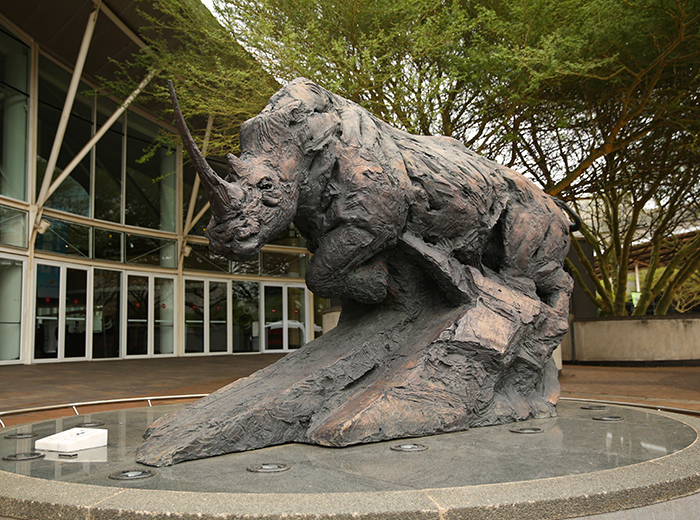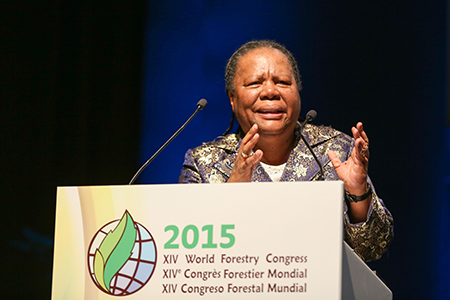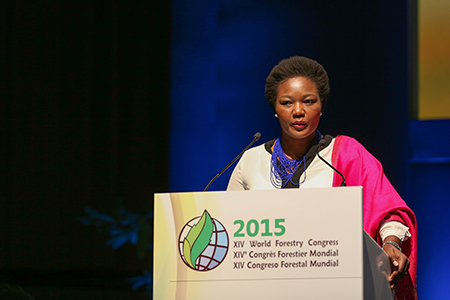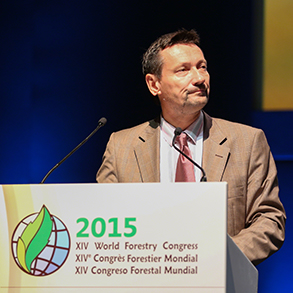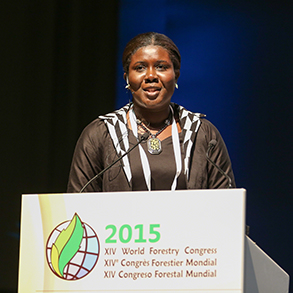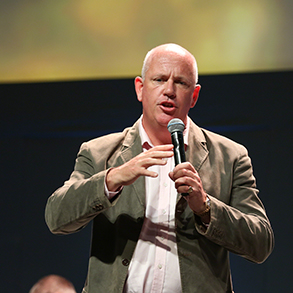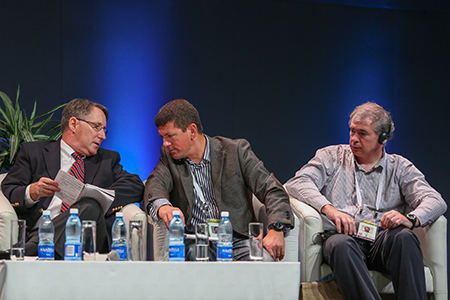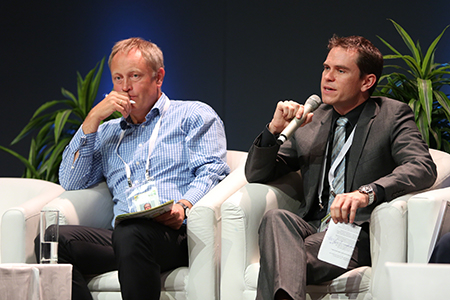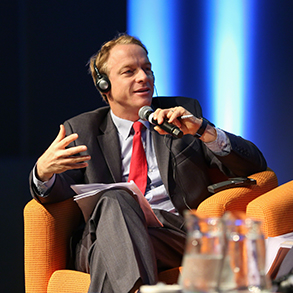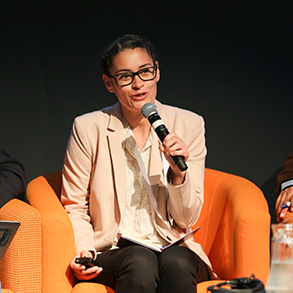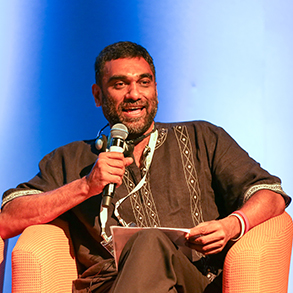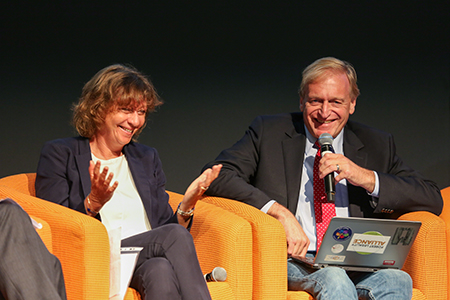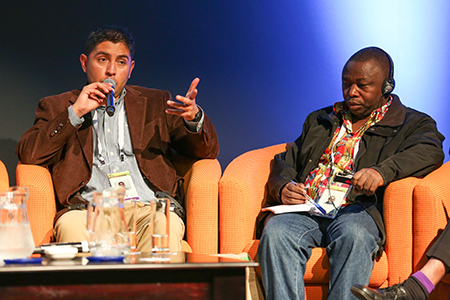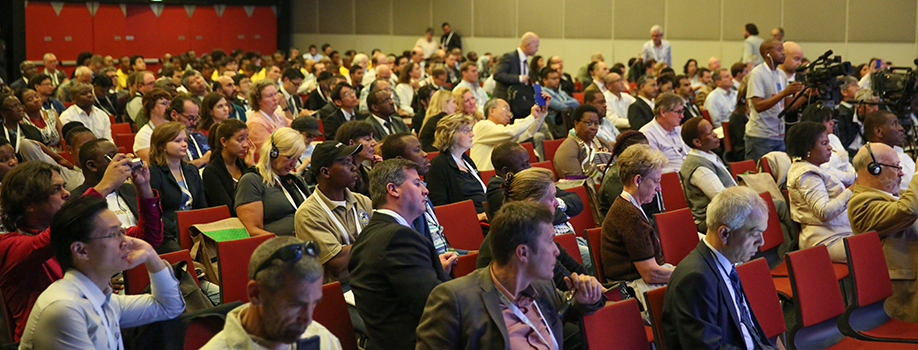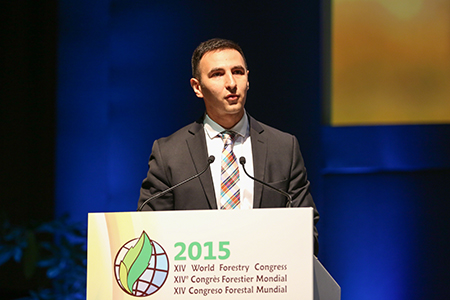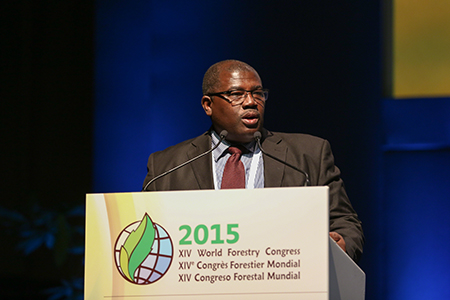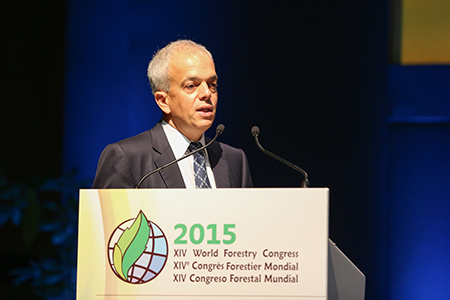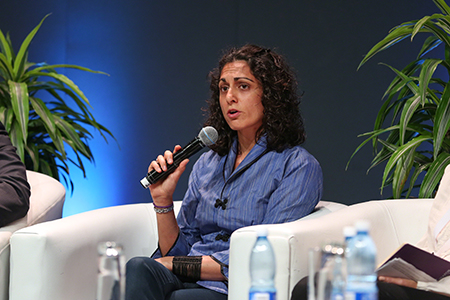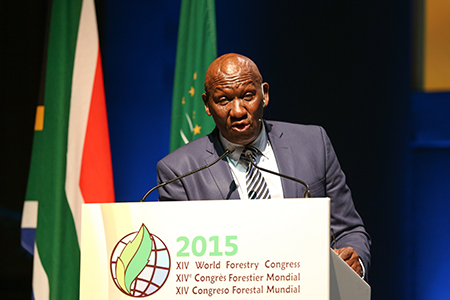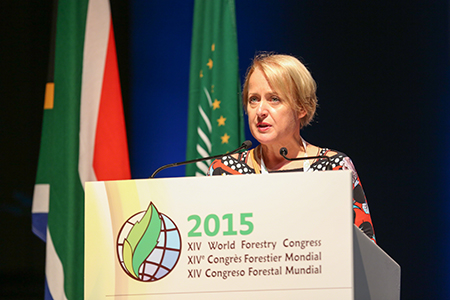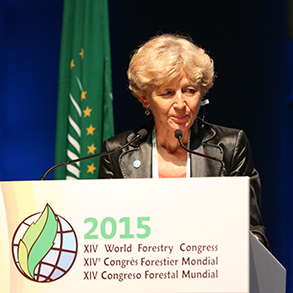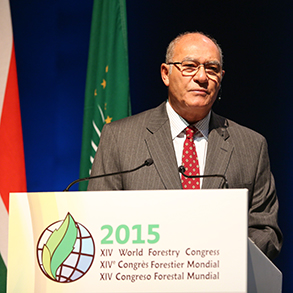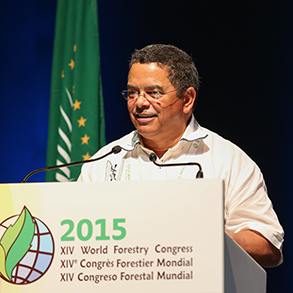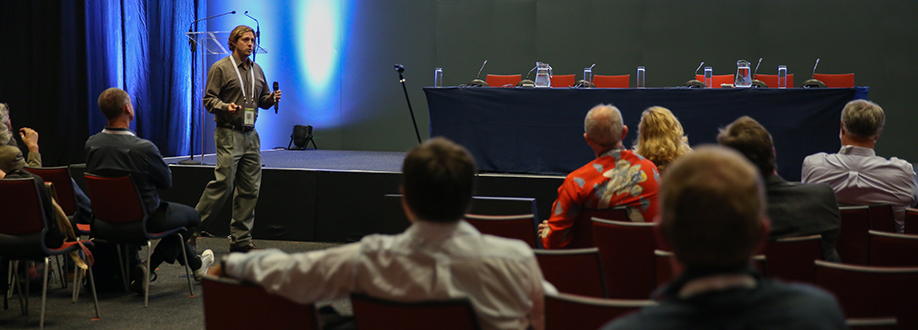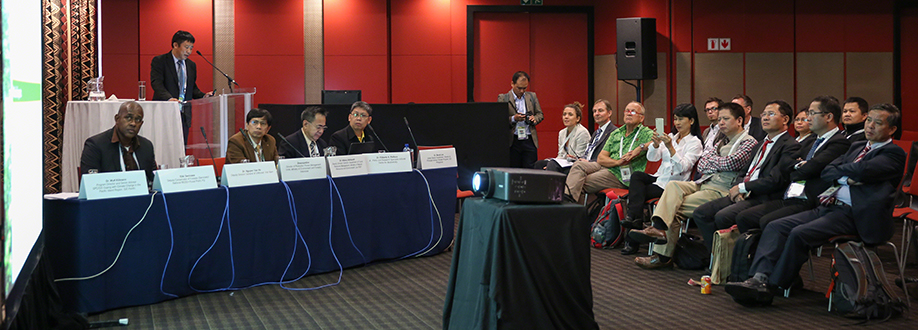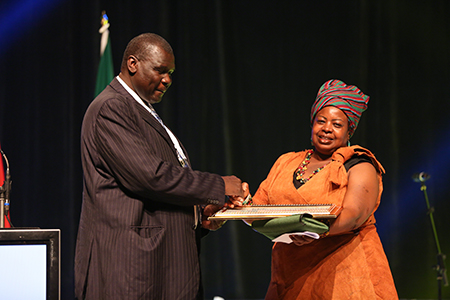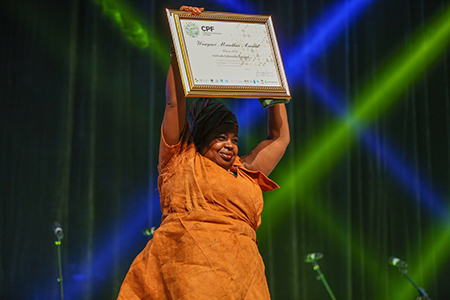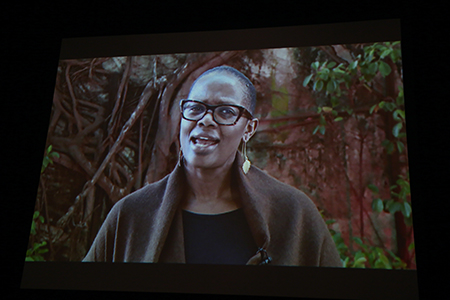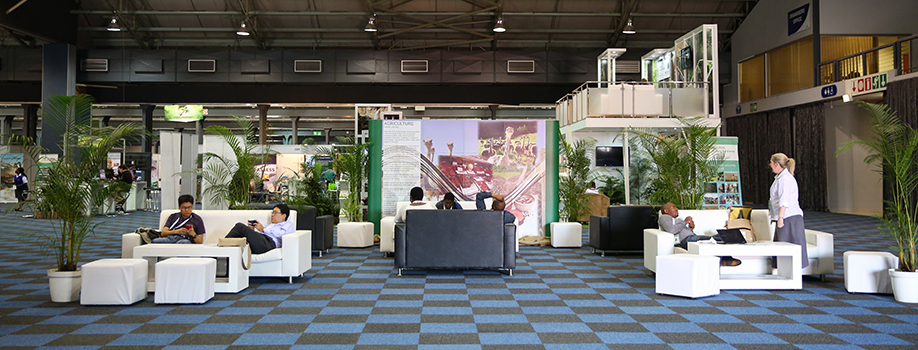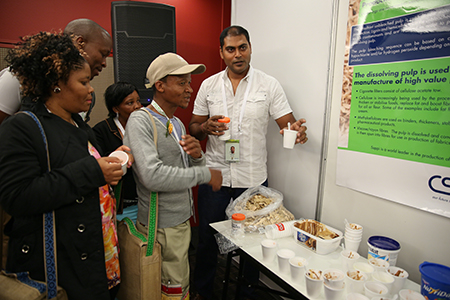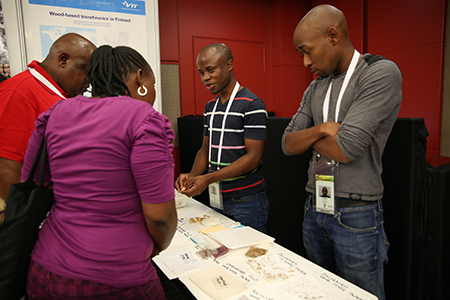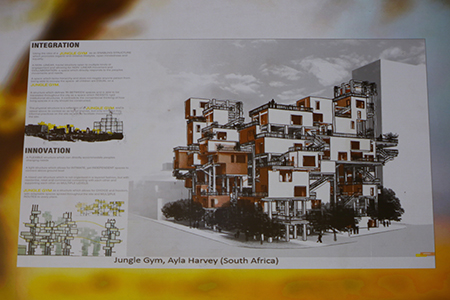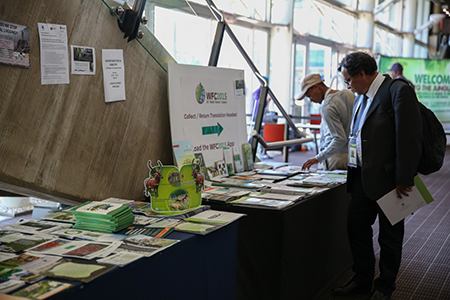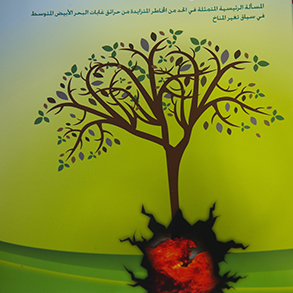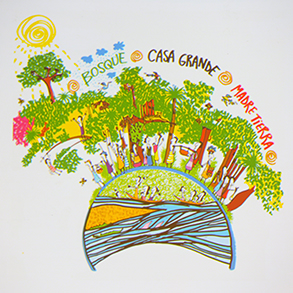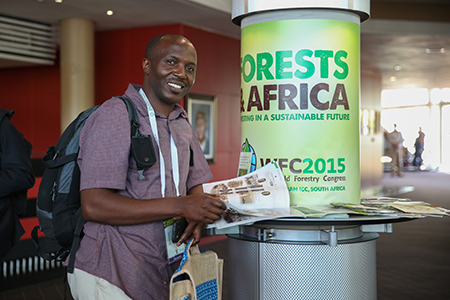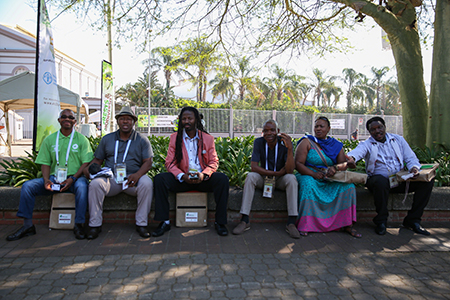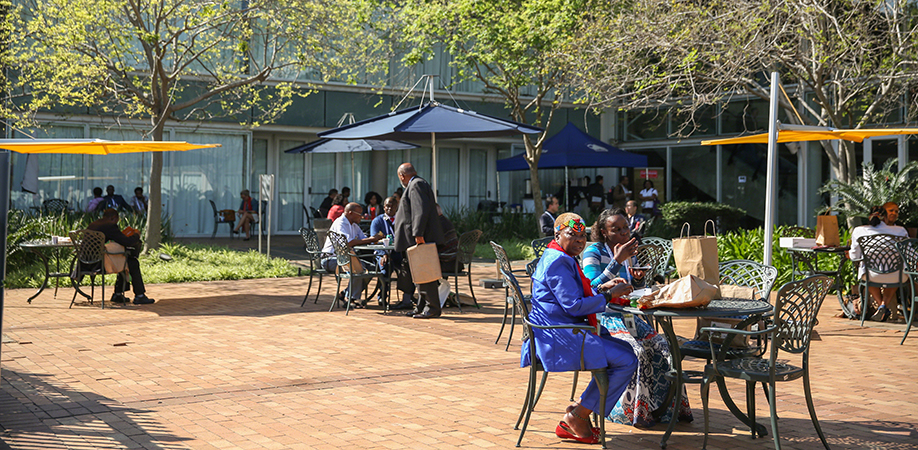|
The XIV World Forestry Congress continued on Thursday morning with two special events and a joint session with the UN Framework Convention on Climate Change (UNFCCC). During the Innovation and Investment Forum, four different panels discussed: investing in forestry, land, trees and biomass; transformative strategies and innovations to engender more sustainable production and consumption in the emerging bio-economy; innovative financing strategies and partnerships with other sectors to produce game-changing results in the marketplace; and looking at innovations to garner consumer support. Panelists provided examples of, inter-alia: government policies and frameworks to support sustainable forestry sectors; access to markets and barriers to commercialization of technologies; private sector efforts in reforestation; innovations and trends in food security, bio-polymers and biotech; and creating products that will increase customers’ environmentally conscious consumption. Participants: stressed the importance of industry experience in accessing finance, and the role of information technology; presented technologies that recycle waste materials; presented on natural tree and seed gums as industrial food additives; and described commercial prospects of forest products.
The Forests and Climate Change special event covered discussions ranging from the need to develop stronger accounting mechanisms for measuring carbon stocks, to strengthening the role of indigenous communities in reducing deforestation. Examples from national and regional cases demonstrated a range of integrated approaches to address climate change through forest management, with the subsequent discussion highlighting the need for strong political will to make serious commitments at the upcoming UNFCCC COP 21.
During the last of the morning events, in a joint session on Climate Financing for Forests, experts from the Innovation and Investment Forum, the Forests and Climate Change Forum, and the Third Forum of the UNFCCC Standing Committee on Finance, hosted over two days during the Congress, discussed challenges for the forest sector to access climate financing, including from REDD+ projects. The designs of the finalists in the TREEHOUSING International Wood Design competition were presented and the winners were announced in the competition that was created to stimulate design in affordable wood housing, and dense, urban wood housing.
On Thursday afternoon, participants met in plenary to discuss the draft Congress outcomes. Representatives from the different sub-thematic dialogues and other sessions reported back on discussions held over the course of the week, noting that these represented a broad range of views and perspectives from a diverse spectrum of stakeholders. The floor was then opened for inputs before the finalization of the outcome documents.
In the evening, during the XIV WFC closing dinner gala, hosted by South Africa’s Department of Agriculture, Forestry and Fisheries, FAO’s Assistant Director-General and Regional Representative for Africa presented the 2015 Wangari Maathai Forest Champions Award to Gertrude Kenyangi, Uganda, as a champion for sustainable forest management in southwestern Uganda. In her own words, Kenyangi described how the Women and Environment Development Organization she founded supports women to lead the way in grassroots agroforestry initiatives in both Uganda and across Africa. The presentation concluded with a short video by Wangari Maathai’s daughter, Wanjira Mathai, who congratulated Kenyangi and urged the next generation of young women to aspire to be leaders of a sustainable forestry revolution. |
|



